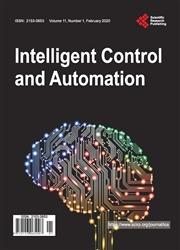Exploring Deep Reinforcement Learning with Multi Q-Learning
引用次数: 35
Abstract
Q-learning is a popular temporal-difference reinforcement learning algorithm which often explicitly stores state values using lookup tables. This implementation has been proven to converge to the optimal solution, but it is often beneficial to use a function-approximation system, such as deep neural networks, to estimate state values. It has been previously observed that Q-learning can be unstable when using value function approximation or when operating in a stochastic environment. This instability can adversely affect the algorithm’s ability to maximize its returns. In this paper, we present a new algorithm called Multi Q-learning to attempt to overcome the instability seen in Q-learning. We test our algorithm on a 4 × 4 grid-world with different stochastic reward functions using various deep neural networks and convolutional networks. Our results show that in most cases, Multi Q-learning outperforms Q-learning, achieving average returns up to 2.5 times higher than Q-learning and having a standard deviation of state values as low as 0.58.利用多q学习探索深度强化学习
Q-learning是一种流行的时间差分强化学习算法,它通常使用查找表显式地存储状态值。这种实现已被证明收敛于最优解,但使用函数逼近系统(如深度神经网络)来估计状态值通常是有益的。以前已经观察到,当使用值函数近似或在随机环境中操作时,q学习可能是不稳定的。这种不稳定性会对算法最大化收益的能力产生不利影响。在本文中,我们提出了一种称为Multi Q-learning的新算法,试图克服Q-learning中出现的不稳定性。我们使用各种深度神经网络和卷积网络在具有不同随机奖励函数的4 × 4网格世界上测试了我们的算法。我们的研究结果表明,在大多数情况下,Multi Q-learning优于Q-learning,实现的平均回报高达Q-learning的2.5倍,状态值的标准差低至0.58。
本文章由计算机程序翻译,如有差异,请以英文原文为准。
求助全文
约1分钟内获得全文
求助全文

 求助内容:
求助内容: 应助结果提醒方式:
应助结果提醒方式:


